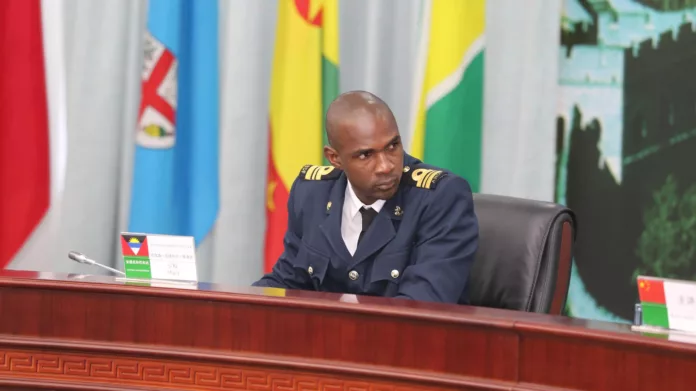By Elesha George
The High Court of Antigua and Barbuda has ruled in favour of Captain Javonson Willock, a senior officer in the Antigua and Barbuda Defence Force (ABDF), declaring allegations of misconduct against him null and void.
In December 2020, Willock was accused of misconduct for fraternising with junior ranks and was instructed to resign, which would have terminated his employment with the ABDF.
Determined to get a fair trial, Willock filed an application in court to stop the Chief of Defence Staff, Colonel Telbert Benjamin, from forcing him to resign, arguing through his lawyer Wendell Robinson that the instruction was not legally permitted, ultra vires (beyond the chief’s legal authority), and a breach of natural justice, statutory procedure and Willock’s legitimate expectation.
On Wednesday, the ABDF conceded that they were in error, leading the High Court to direct the Chief of Defence Staff to remove the letter of reprimand from Willock’s file and handle the matter in compliance with the Defence Act of 2006, along with its amendments and statutory regulations.
Additionally, the court ruled that Captain Willock is entitled to damages and costs, with a settlement expected no later than October 26, unless an agreement is reached sooner.
The crux of the legal battle revolved around events that transpired in late 2020 and early 2021. According to court documents, on December 23 2020, Willock was questioned by the then Vice Chief of Defence Staff (VCDS) Lieutenant Colonel Trevor Pennyfeather on behalf of the Chief.
On March 24 2021, after an investigation into the matter, Willock was asked to resign for reasons including that the Chief no longer trusted him and did not wish to work with him. Willock was also reportedly told that he would not be considered for any promotion and/or upgrades. He was given 10 days to submit his resignation.
Willock’s lawyer pointed out that, throughout the investigation, and at the time of the resignation request, no concrete evidence of wrongdoing or misconduct had been presented to Captain Willock.
Moreover, the Chief refused to disclose any evidence he purportedly had against Willock. Willock therefore concluded that this instruction to resign was against the Rules of Procedure outlined in the Defence (Amendment) Act 2012.
He also argued that the Defence Board was the only authority that had the power to instruct him to resign, and he requested a fair hearing under the act.
He was later served with six disciplinary charges. He was tried instantly, found guilty and was convicted on all counts. Additionally, the Chief wrote a letter to the board insisting that it ask Willock to resign or to otherwise dismiss him.
Willock’s lawyer alleged that his client had been subjected to harassment by the Chief, who made multiple visits to his home, demanding his resignation. These actions had severe consequences for Willock, who saw the convictions on his record used to deny him promotional opportunities and other benefits.
Robinson, in court documents, highlighted that as a result of the incident, Willock was stripped of his responsibilities at work, disarmed of his service pistol, and had his cell phone confiscated. He also noted that his client faced those disciplinary charges alone, while a more senior officer was implicated under the same circumstances, which was unfair, unlawful and unconstitutional.


